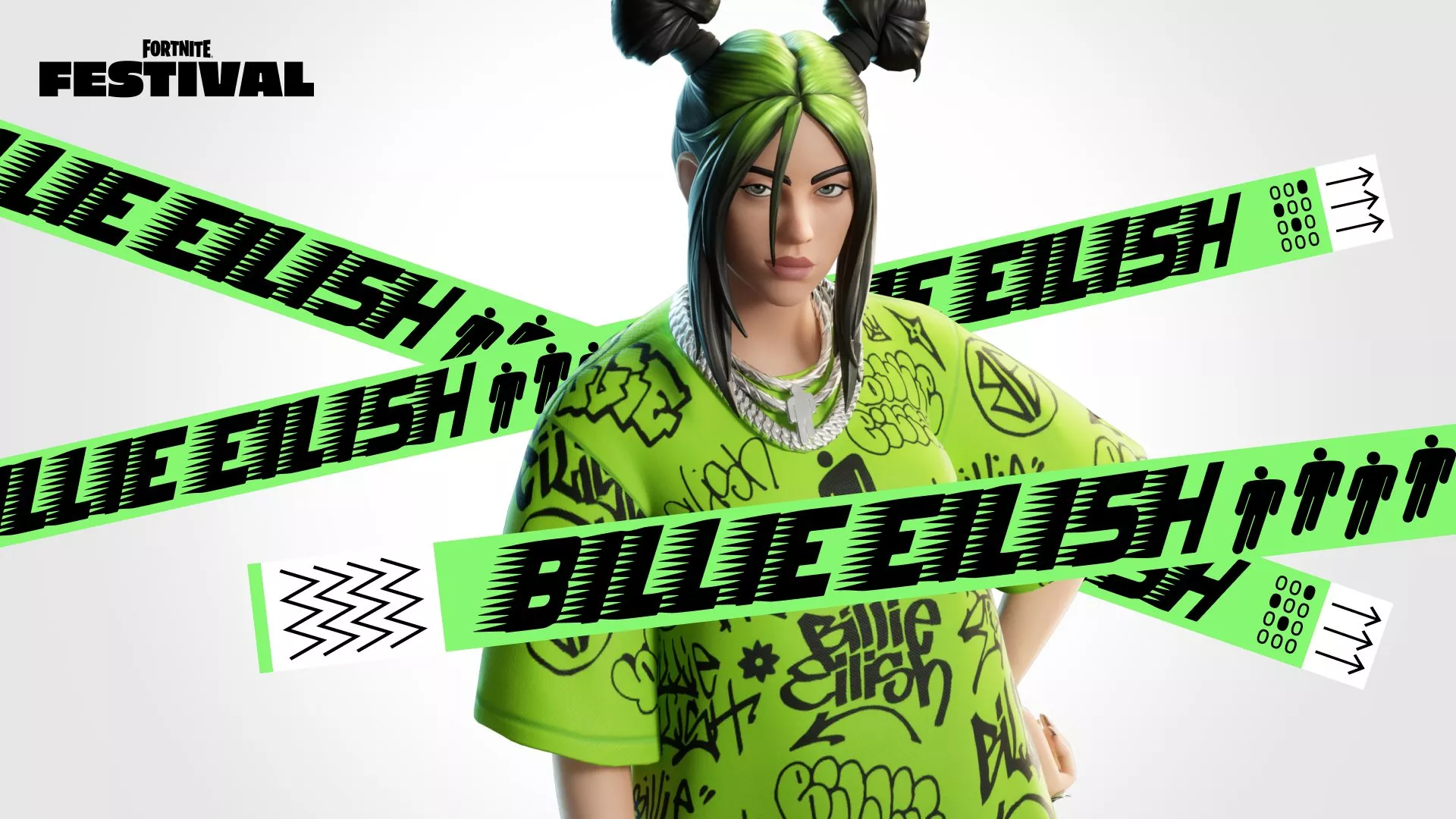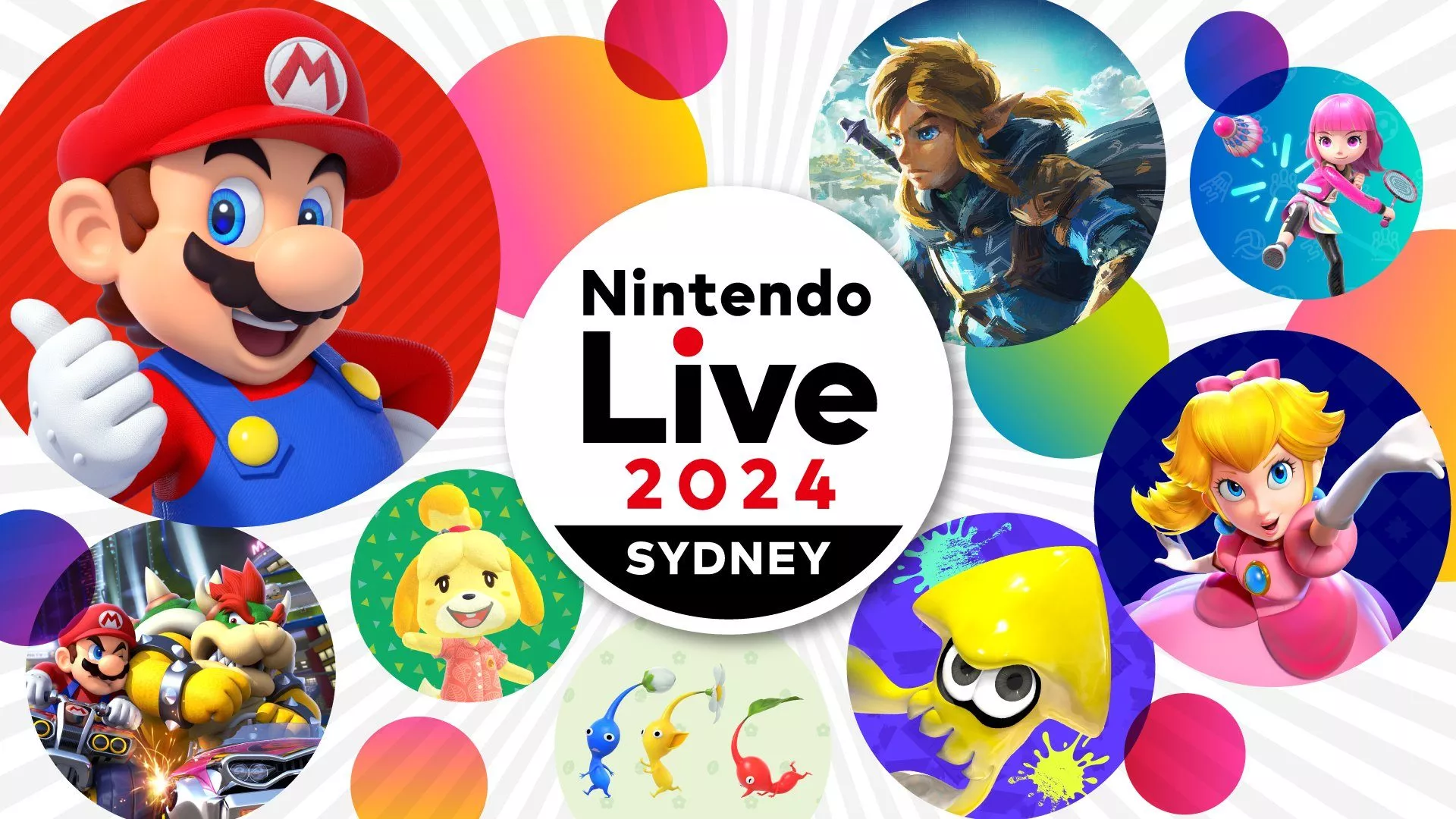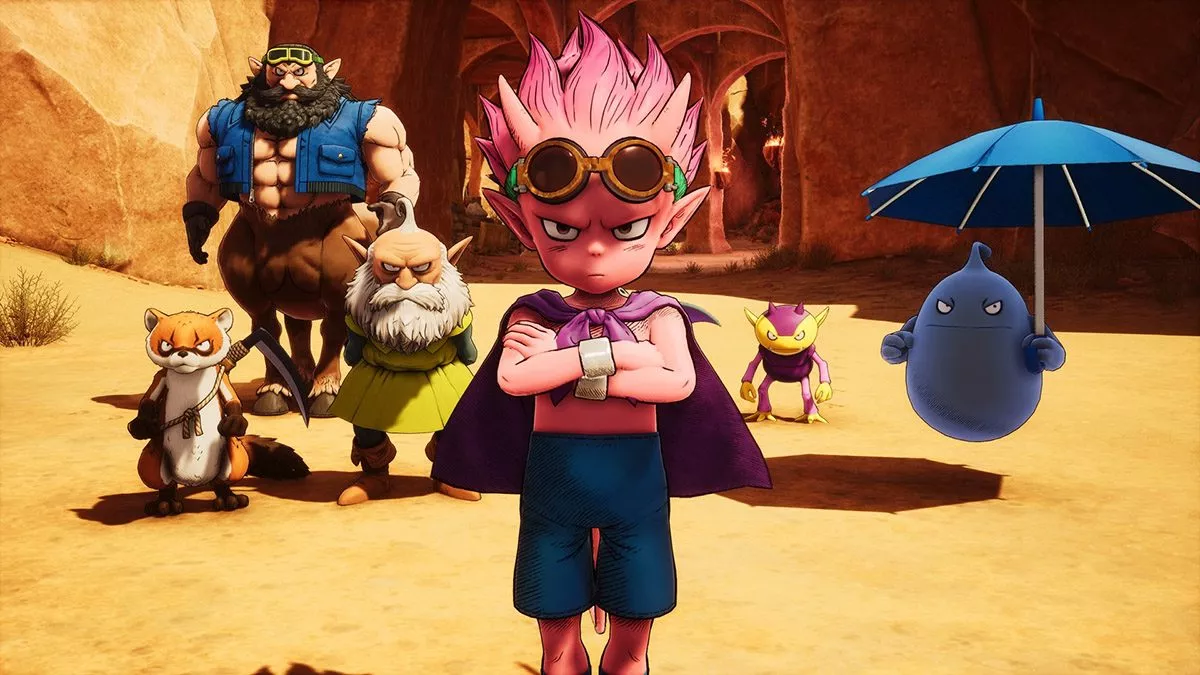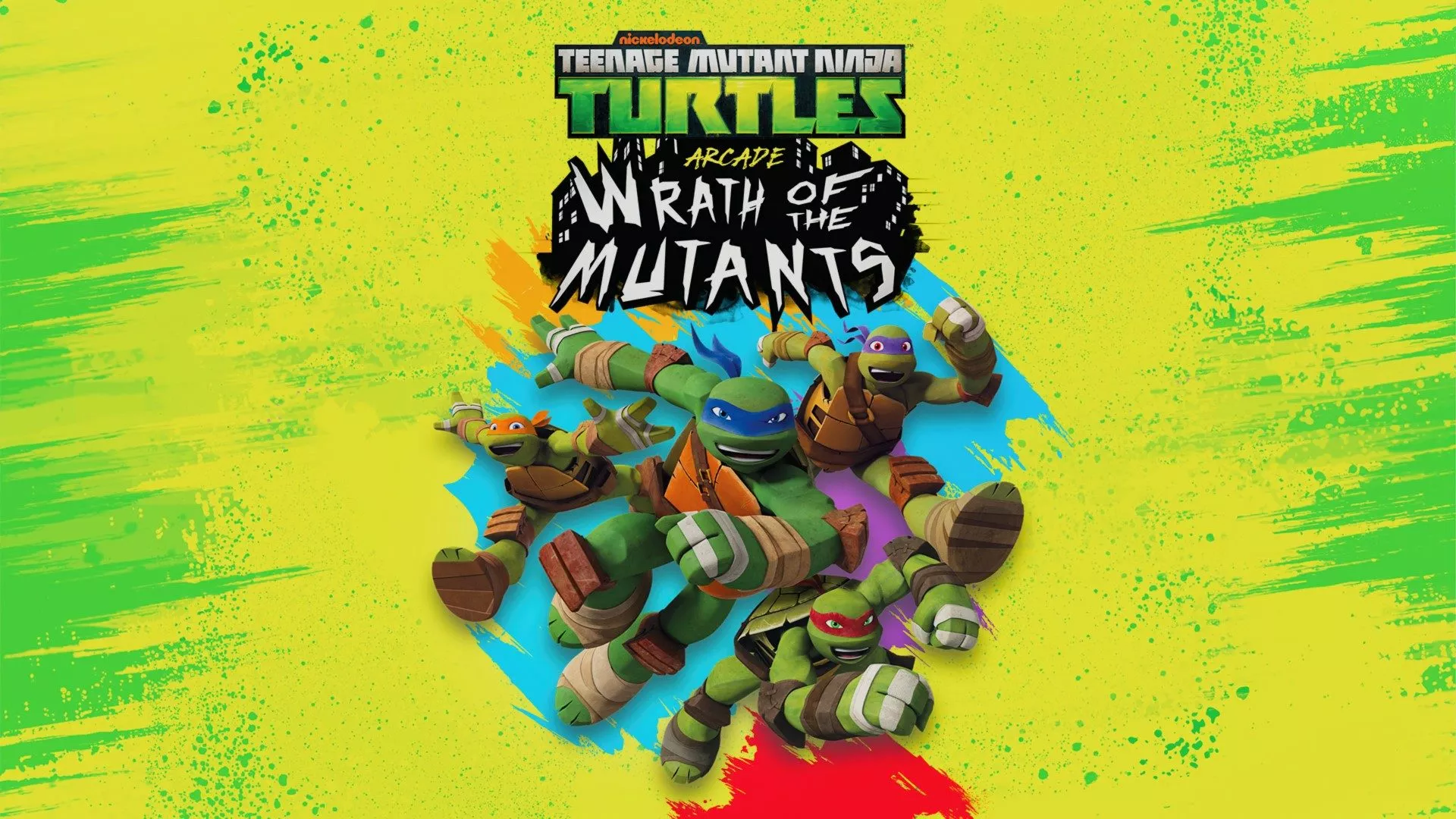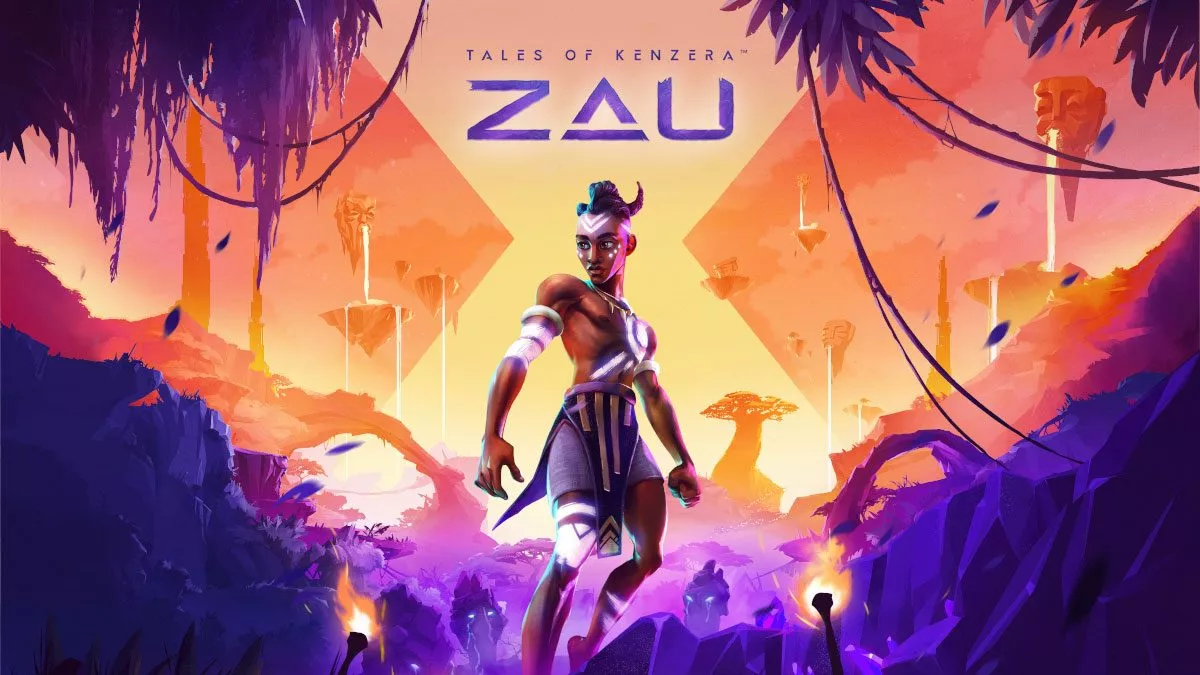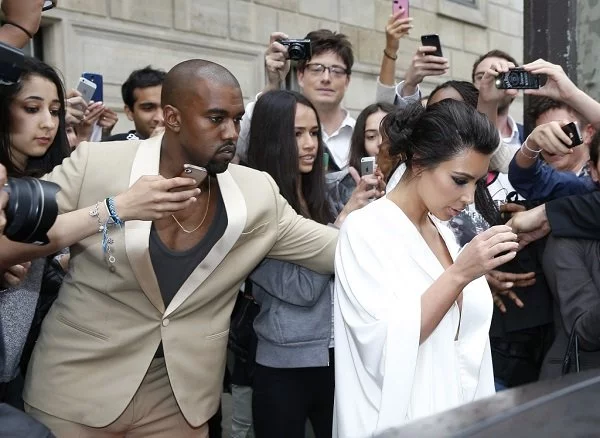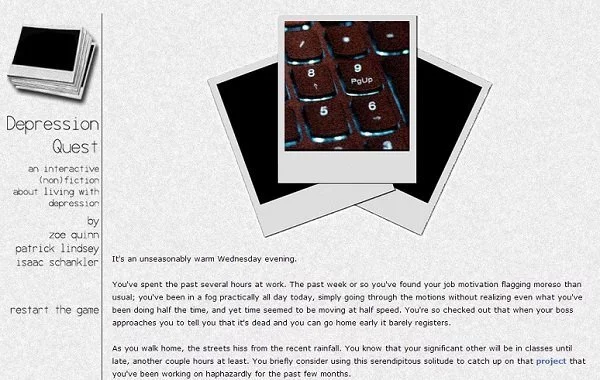Microsoft versus Sony, Battlefield versus Call of Duty and Forza versus Gran Turismo. These are some of the rivalries that can get people talking about console wars. “Game On or Game Over” is your place to get inside the minds of Nicholas and Andy as they seek to find the true meaning of gaming and tackle some of gaming’s most controversial subjects. Both are award winning authors – although the awards haven’t been mailed or created yet — but trust them. Would they lie to you?
Nicholas: The video game industry/community is not one without controversy, and no truer has this statement been than over the past few weeks. Anyone with a social media account is sure to have seen some talk regarding ‘Gamer Gate’, and it would have been hard not to considering it received its own hashtag on Twitter. From questions of integrity in the media to examples of sexism/misogyny within the community, there was a fair bit to digest as this all unfolded. So where to begin?
Irrelevant of the stories behind both Zoe Quinn and Anita Sarkeesian and the validity behind them, there’s no denying that the type of comments they’ve both been at the end of are far from acceptable. This itself requires no discussion. What I would like to talk about though, is the people behind them. All too often I read articles about the serious issue of misogyny and sexism in the gaming world. All too often I see people begin their posts with, “don’t read the comments”. As an outsider looking in, you wouldn’t be wrong for thinking every ‘gamer’ online is a backwards-thinking, women-hating pig, but is this accurate? Let me explain.
It doesn’t take much to visit any YouTube video, scroll down to the comments, and see someone posting something offensive. It doesn’t take much to see the same on an IGN or Kotaku article either. As a matter of fact, it doesn’t take much to see this on any article on any website. What does this mean though? Sure, we can write this off as gamers being sexist pigs or we can write this off as the Internet being filled with asshats, but is this accurate? To kick this week’s article off I’d like to get your opinion on the following – are the kind of comments that we see on videos and articles online accurate of the gaming community as a whole? When there are discussions about sexism in the industry (focusing more on the opinions of people online), do you believe what you see online is an accurate representation of the greater gamer-base?
Andy: Ah ‘Gamer Gate’, it’s a perfect example of people trying to make themselves look like the white knight and wanting to root out ‘evil’ and ‘corruption’ no matter where it’s found. To be honest, I haven’t paid much attention to the whole thing. This is because a) it’s none of my business and b) just hearing pieces of different things from whoever wants to spin it does not make a complete picture so having all the facts will never happen. There are any number of conspiracy theorists out there who can take a piece of the pie and write it to make it sound like the entire gaming journalism world is this group of perverse people who will give a game a good score as long as one of the developers sleeps with them.
Are there game journalists who let things, aside from the game itself, sway their judgment and views? Without a doubt. But, for every one of those types of journalists I’d argue that there are 100 or more that have integrity and do things the right way. You question above if it’s just the video game community, and I’d have to say no. You can go to any article written about pretty much any topic and there will be a few people who think it’s their sole purpose to ignite fires and like a complete jackass. It’s the way of the facelessness that the internet brings. I can say whatever I want, whenever I want to say it and have no fear of being held accountable for it. Everything is fair game; sexism, racism, hate speech and more. I don’t look at comments much anymore because there are rarely any value to them. Pick any topic that could create a great discussion, scroll down and see one thoughtful response and one trolling response. Which one has more comments and thumbs up/down. The one that’s trolling. That’s the irony here, in that people always say they hate the troll comments yet those are the ones they reply to. Even if the reply is “Stop trolling.” They are still getting exactly what they wanted.
The thing about the gaming community is that it seems as if around 25% of them are stuck being two year olds. In that if they don’t get what they want, when they want it, they scream at the top of their lungs about how much of an injustice something is. It’s much akin to being in a grocery store with a two year old at the checkout and them wanting a candy bar, you say no, so they throw a temper tantrum. The only way to get them to be quiet Is to give them the candy bar. Of course, this is the same group that when you delete a comment from them they scream about their right to free speech – even though they have no idea what it means other than seeing the word ‘free’. The other 75% of gamers either just want to play games with no fuss, or they don’t care about these manufactured scandals that happen regularly now. I remember a writing class in high school where we were writing articles for the school newspaper. Classic age old advice from the teacher “report the news, don’t become the news.” It seems like there are a select group of people who want to always be part of the news and this only helps to fuel the distrust with gamers as a whole.
If you asked me back when I first started playing games who made a game I would have responded with Sega, Nintendo, Sony etc. I may have said a developer once and awhile but pretty doubtful. Now, ask a gamer who makes a game and you’ll hear Cliff Bleszinski, Notch, Will Fish, etc. It’s become less about the developer and more about the individual wanting their face out there. It disappoints me that we can’t have as many good conversations about… you know, games. Instead it’s become “Did you hear what <insert name> here said about <insert other name>?” I would rather the community get back to talking about the reason we are all here, games, instead of trying to manufacture stories about people’s lives and life choices. I’m just one of those people that hates drama. I play games to get away from all that crap. Is that too much to ask? Better yet, should we even have to ask that?
Nicholas: I completely agree with you there. If I’m honest, one of the main reasons that I’ve become so jaded towards the media and the community is because it seems like the only discussions we’ve been having lately are the same ones about sexism and ‘white privilege’. Why some claims are valid, it seems we’ve not progressed further than merely calling these examples out, rather than being proactive about ultimately fixing it, and this has just become a little too tiresome. You asking what you have is exactly the situation I find myself being in – the entire reason I continue to play games is to enjoy them and experience the worlds and characters they have to offer. Similarly, the reason I decided to start writing about games was to just talk about that passion with fellow gamers. Becoming involved with the politics of gaming and game development was not something I had in mind when I began a few years back and nor is it something I like to get involved with. Then again, here we are discussing just that.
I’d like to continue off the comments you made above regarding the 25-75% split of the gaming community. I can’t really give a figure, but it does seem there’s a split between gamers – there are those who are vocal jerks (whether they stand by their comments or are just in it for the attention), there are those who are vocal about being against those jerks and rallying together to stop/change them and then there are those just don’t care about it all. When this entire ‘gamer gate’ fiasco was unfolding a few weeks ago I saw some comments that these were ‘dark days’ for the community. Some people were also talking about how they were embarrassed about being ‘gamers’ while all this was going on (specifically the threats towards Quinn and Sarkeesian). There were even those who were afraid to even get involved in discussing what was going on. While it’s linked to what I asked before, what are your thoughts on things like this? When you read comments about ‘gamers’ abusing these two individuals and all the other kinds of vitriol that was being hurled at anyone who supported them, did you want to feel detached from the community, or is this unnecessarily grouping together the greater (and nicer) gaming community with a few idiots?
Andy: Here’s the thing, I’m not ashamed to be part of the gaming community. The gaming community can be a truly awesome place. The key distinction to make is that a few people who do all the crap, are not indicative of the community as a whole. You can extrapolate that to any type of community you want. I live in a nice community where we do a lot of good stuff here like helping homeless animals, providing food and shelter to those who need it, the list goes on and on. Yet, within my community there are some that steal, assault others and what have you. It’s not fair to look at the community as a whole and pick only those negative instances and say, “I live in a terrible community.” The gaming community is much more than immature people spewing vitriol on online message boards. It’s more than people threatening others. I’d argue there is much more positive about the gaming community than negative, but as always the screaming child is the one that gets the most attention.
Like everything else, we choose to be a part of anything. We are the ones that choose to ignore those things which are insignificant and don’t matter. I’m not sure if it’s the tabloid mentality or what, but the gaming community should be concerned about *gasp* gaming. New games coming out, gaming conventions, review scores, achievement/trophy guides and most of all having fun. It’s puzzling to me that by its very name “gaming” is about having fun, yet here we are on the cusp of the holiday gaming season and a plethora of new games in the pipeline, talking about threats to developers and media members. So, to answer your question, no I am not ashamed to call myself a gamer or be part of the gaming community, as long as people understand that a few idiots do not represent what being a gamer is.
You bring up a very valid point though. With so much going on right now in gaming like I mentioned above with new releases coming out etc., it begs the question of: Why do we continually talk about these ‘scandals’? It’s certainly not a slow time of the year for the industry, why are gamers so bloody concerned with every little detail about the lives of those who make the games and cover the games? Do you think the community needs to take a step back and reassess what’s important and what’s not? Or is this just a case of the TMZ era where the tabloids rule the front page?
Nicholas: A lot of it might boil down to the fact that these are hot topics within the media/industry right now. Not to detract from the seriousness of some of the comments and threats that have been made, but talk about the corruption of games journalism and comments like ‘sexism hits a new low’ are guaranteed to get attention from readers. For example, just think of the sh*t-storm that occurred when it was revealed that you couldn’t select a female playable character for Assassin’s Creed Unity online. I bet the majority of people who were angry about the news have no idea what is involved to create a character in a game, but rather than investigate the facts it was just a slur of insults and sarcastic comments hurled at Ubisoft for how hopeless they were. I’m not suggesting that cases of sexism shouldn’t be reported on, but I certainly think we need to reassess what is really important and news-worthy, because right now, there seems to be a blow-up of every minor story to try and make it as controversial as possible.
Moving on though, I’d like to discuss the other main talking point that has arisen out of this gamer gate fiasco, and that’s the integrity of video game journalism. It was alleged that positive reviews were written for Depression Quest, a game that Quinn had created, after she had slept with a small number of individuals in the industry. Now for me, even if these allegations were correct (I’ve not done enough research to confirm either way, although I feel it’s irrelevant regardless) it goes in much the same way that we discussed trolls and the community as a whole earlier on. A few potentially biased reviews does not mean the entire media has claims of corruption to answer to. What about you though? Do you think this entire ordeal highlights an issue with integrity in the media, or is it just another blow-up from trolls that people have unfortunately decided to give credit to?
Furthermore, what are you feelings towards disclosure in the media as it stands? I recall a recent conversation that took place on a friend’s Facebook post, where people were demanding that he discloses the fact he is friends with some of the PR staff at a major publisher every time he visits their offices for a preview or launch event. Do you think these kinds of demands are valid? There’s no denying that games journalists and reviewers often become friends with PR staff in the industry – does this pose a potential conflict of interest? Should these friendships be disclosed in every article, or is it just something that is bound to happen when you interact with the same group of people on a regular basis as part of your work?
Andy: Anytime people interact over and over again, there’s bound to be some sort of a relationship that forms. Like many other game reviewers we often get games to review from the developer, publisher or other entity acting on their behalf. They almost always say “If you have any problems let me know.” When a problem arises or you have a question it’s solved with a quick email. I have never had a publisher or developer place a condition on reviewing a game. None of them have ever said “You can have game X early to review only if you give it an 8 or above.” Sure I write for Stevivor and as such may be slightly biased here, but all the preview stuff I’ve read from the site seems to be more than fair.
The thing about writing any type of a review or preview for a game is, it’s all based on the opinion of the person doing the writing. When I write I try to say things that I would be interested in if I was the one reading it. Do I have genres or games that I prefer over others? Absolutely. Do I tend to play those more than others? Again absolutely. That doesn’t mean I can’t be objective though. Here’s a perfect example. Most who read my writing know I am a Pinball FX2 fanatic. I love it, I love it so much I own almost every table on five separate platforms. A couple months ago Zen Studios released a Deadpool table. I of course was eager to give it a go, but found that I didn’t care too much for it. I ended up giving it a 6/10 because, in my opinion, it just didn’t measure up with some of the other tables. I emailed the Zen Studios CM the link to the review and offered a little more explaining of the ‘why’ behind the score. The response I got back was, and this is paraphrasing, “Don’t worry about it, we know everyone won’t love every table that’s why we have so many options. Thanks for being honest and thorough. Don’t sweat it at all.”
As reviewers we naturally bring a certain set of biases with us whenever we review/preview a game. There are genres I love like racing and RPG, and genres I don’t care that much for like fighting games. So for those I really like I have to constantly check and balance what I was writing. I want to be fair to the game I am writing about, but at the same time not let my personal preferences cloud my thoughts. It can be a challenge at times, but I strive to be one hundred percent honest in everything I write. I’m willing to bet that most writers are the same way. Regardless though, anyone writing any review is just one opinion. Gamers need to take multiple opinions into account when looking at games. I think at times gamers get to caught up in a score or a number from one person and automatically deride it as biased or a hack job. I don’t think any writer would say their opinion is the only one and therefore the right one. Yet, readers seem to take great offence whenever a game is scored one way or another.
That leads into my next question for you. As a reviewer, do you ever get frustrated feeling that you are stuck between a rock and a hard place when you write a review. It seemed regardless of the score someone will say you are biased. You write a glowing piece about a game and gamers will scream that you were paid off, or you are friends with someone at the company. You write a more negative toned review for a hotly anticipated AAA game and you’re obviously a hack who didn’t play the game enough or understand it. When you look at it we ae 50% wrong no matter what we write it just depends on who you ask.
Nicholas: I’ll be honest in that I’ve fortunately dodged a lot of those kind of comments during my time as a writer/reviewer. That said, there are times when I’ve seen comments like that made towards other members of the site for their pieces and it has bothered me somewhat. You really did hit the nail on the head by saying that a review is nothing more than an opinion, and it’s important that readers don’t just base their purchasing decisions off the thoughts of one person. I look at some of those negative comments and I try to think of the motivation behind it, and all I can think is that the reader expected something different – either a higher score because they were looking forward to the game, or a lower score because they don’t like the franchise/title – and for this reason they take it out on the writer because they don’t see eye-to-eye.
The entire concept of being wrong 50% of the time is an interesting one and I think it has merit. As I just said, there are always going to be people who will read your work and agree with it. On the other, there will always be some who will read your work and disagree with it. I don’t think it’s wrong for someone to give negative feedback on your articles, but it just needs to be constructive. Like we started this article talking about, some people will be jerks online, it’s important not to give them any more thought or attention than they deserve.
To end things this week I wanted to get your opinion on ‘games journalism’ itself. We’ve discussed ourselves as being video game writers/reviewers, but do you think the concept of a journalist is still relevant in this industry? You mentioned above about the media and the community changing its focus to shift back to the reason we are all here today, how does this fit in to what you’d like the media to be reporting on? Comparing news journalists and video game journalists, do you think there is a significant disparity between them, and if so, how come?
Andy: I think there is certainly a place for game journalists and game reviewers. If anything they keep each other honest. If one writer or site consistently gives games super high scores while all the other sites are scoring lower readers will see that. Saying that, I think game outlets (review/journalistic-wise) need to be willing to change things on the fly and adjust to what readers want and are expecting. I think gamers are smart enough to understand that reviewers get copies of games so that the publisher can guarantee something will be written for hat game. Like I said before during my time writing for Stevivor I have never been given a game assignment to review with the caveat that I need to score it a certain way. The only thing I have ever been told was to be honest and thorough. As a gamer myself, and one who has read countless reviews, that’s all I would want from a review. Sure, I have friends, or at least good acquaintances, that work on games. I’ve never favored their games in anyway, in fact I may be more critical of their work because I don’t want to be seen as favoring them. It’s an odd contrast to have, but it’s a very real one.
At the end of the day, most reviewers aren’t writing because we are making boatloads on money. We do it because we are passionate about games and the industry. Those very reasons that gamers pick up the latest game, those are the reasons we want to write. We love talking about games and discussing what makes them great or not so great. We all have opinions, but those varying opinions and experiences are what makes gaming truly amazing. From an FPS to an old 8-bit classic there is literally something for everyone. The thing that’s most important though, is that no review anyone reads (except for mine of course) is ever 100% right. Every reviewer brings some type of bias to the table no matter what they are reviewing. The key is finding sites and reviewers that have similar tastes and go from there. Ultimately, it doesn’t matter what score you or I give a game, what matters most is ‘is it fun for the individual gamer to play’. The only person that can make that decision is the individual gamer. We just try to help guide them towards, or away from, games they will prefer or not like. Sometimes it’s fun to take a chance on a game – discovering a diamond in the rough is more fun than anticipating the next AAA super hyped game. Everyone has different opinions and see things others may overlook it’s always up to the gamer to play what will make them happy, because that’s what gaming is about, having fun. Sometimes we lose sight of that.
Tune in next time for the next instalment of Game On or Game Over. If you have any ideas for our next article, feel free to contact Andy or Nicholas on Twitter.
This article may contain affiliate links, meaning we could earn a small commission if you click-through and make a purchase. Stevivor is an independent outlet and our journalism is in no way influenced by any advertiser or commercial initiative.


